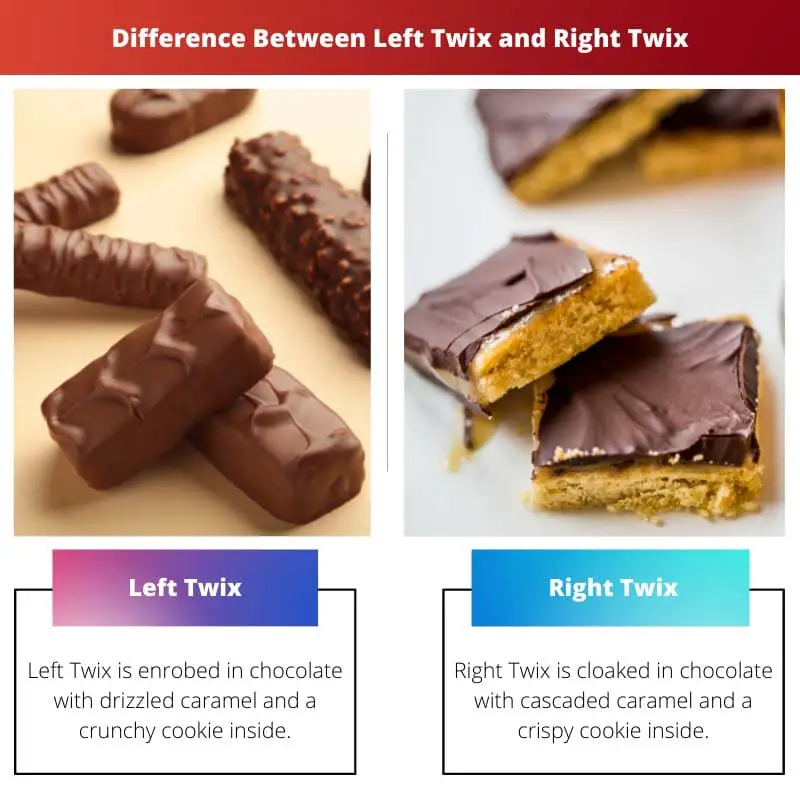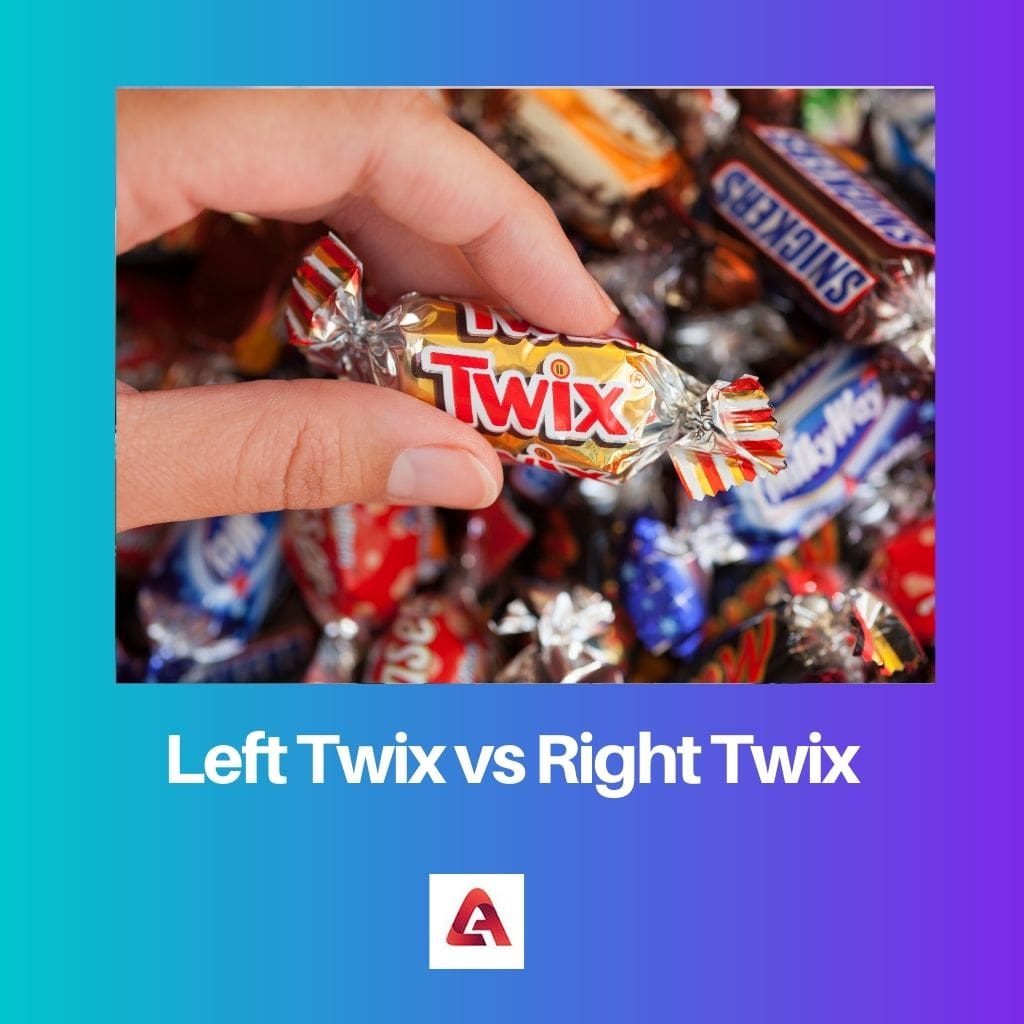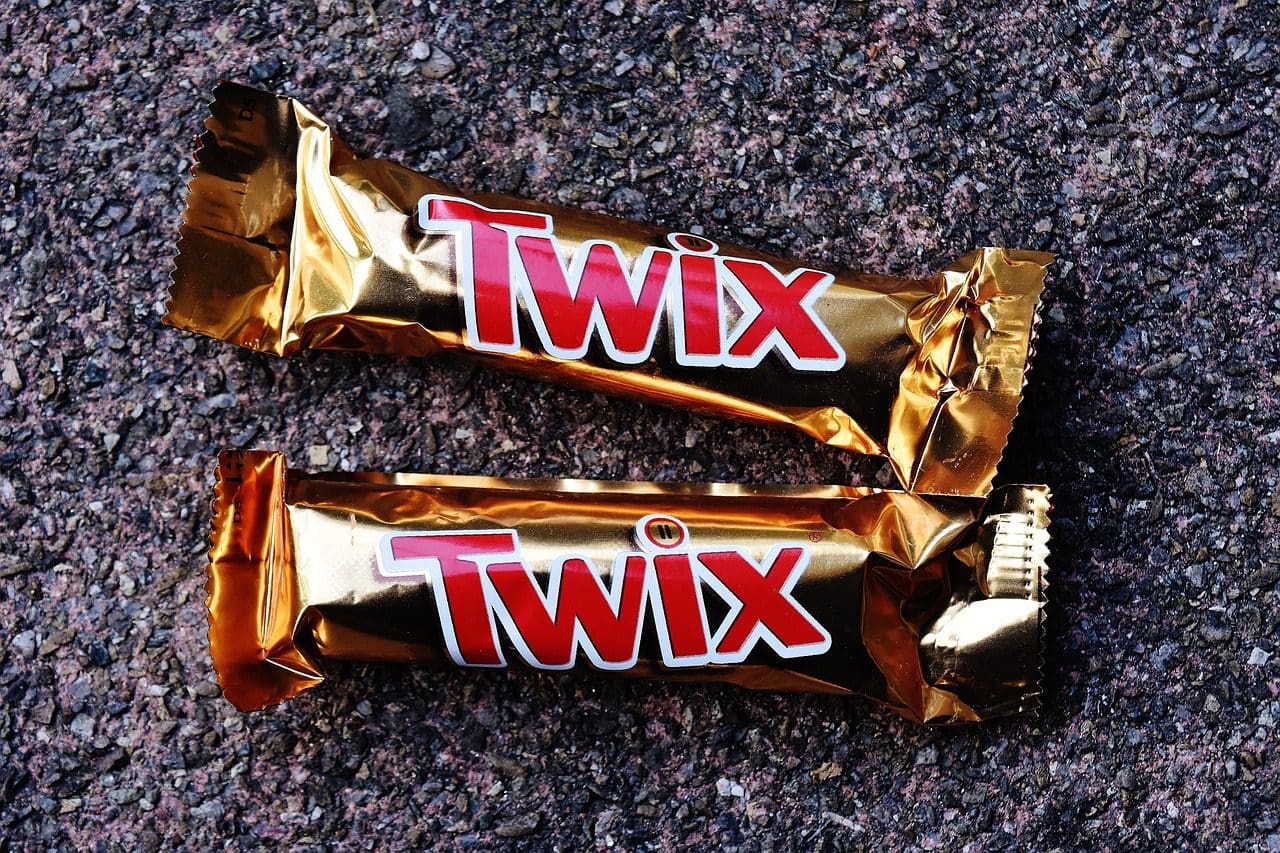Twix bars have long been a favorite among candy lovers, but did you know there’s a subtle distinction between the "right" and "left" Twix? While both are delicious, understanding these differences can elevate your snacking experience. Whether it’s about flavor profiles, packaging, or regional preferences, this article dives deep into what makes each side unique.
For many years, the iconic Twix candy bar has been split into two distinct pieces, sparking curiosity about their differences. Some claim the right Twix tastes sweeter, while others argue the left one is creamier. These debates have fueled endless discussions among enthusiasts and casual snackers alike.
This article aims to explore the nuances of the right and left Twix, backed by research and expert opinions. We'll cover everything from historical origins to manufacturing processes, ensuring you have all the information needed to make an informed decision next time you grab a Twix.
Read also:Danijela Spanic A Comprehensive Guide To Her Life Career And Achievements
Table of Contents
- Biography of Twix
- History of Twix
- Key Differences Between Right and Left Twix
- Ingredients and Flavor Profiles
- Manufacturing Process
- Marketing Strategies
- Consumer Preferences
- Common Myths About Right and Left Twix
- Health Implications
- Conclusion
Biography of Twix
Before diving into the differences, let’s take a closer look at the origins of Twix. Originally introduced in 1961 in the UK under the name "Raider," Twix quickly gained popularity due to its unique combination of caramel, chocolate, and biscuit layers. In 1979, the name was officially changed to Twix, and the rest is history.
Key Facts About Twix:
| Fact | Detail |
|---|---|
| Year Introduced | 1961 |
| Original Name | Raider |
| Country of Origin | United Kingdom |
| Global Launch | 1979 |
History of Twix
The journey of Twix began in the early 1960s when it was launched as Raider in the UK. Over the years, the candy bar underwent several transformations, including changes in packaging and branding. In 1979, Mars Inc. decided to unify the brand name globally, renaming it Twix.
Today, Twix is available in various flavors and sizes, catering to diverse consumer preferences. Its popularity has grown exponentially, making it one of the best-selling candy bars worldwide.
Key Differences Between Right and Left Twix
Visual Differences
At first glance, the right and left Twix may appear identical. However, subtle visual cues can differentiate them. The right Twix often features a slightly darker caramel layer, while the left Twix tends to have a more golden hue.
Textural Differences
Texture plays a crucial role in distinguishing the two. The right Twix is known for its firmer biscuit layer, providing a satisfying crunch. On the other hand, the left Twix boasts a softer biscuit, offering a more delicate bite.
Read also:Ozzy Lusth The Journey Of A Survivor Legend
Ingredients and Flavor Profiles
The ingredients used in Twix are carefully selected to ensure consistency and quality. Both the right and left Twix share similar base ingredients, including:
- Wheat flour
- Sugar
- Vegetable oils
- Milk powder
However, slight variations in the caramel recipe can lead to differences in flavor. The right Twix is often described as sweeter, while the left Twix leans toward a richer, more caramelized taste.
Manufacturing Process
The manufacturing process of Twix involves several stages, from mixing ingredients to packaging. Each Twix bar is crafted with precision to maintain its signature taste and texture.
Steps in the Manufacturing Process:
- Blending ingredients for the biscuit layer
- Creating the caramel filling
- Coating with milk chocolate
- Dividing into two equal parts
Marketing Strategies
Mars Inc. employs innovative marketing strategies to promote Twix. From catchy slogans to engaging social media campaigns, the company ensures Twix remains a household name. The "Two for Me" slogan highlights the dual nature of the candy bar, emphasizing the choice between the right and left Twix.
Consumer Preferences
Consumer preferences vary widely when it comes to choosing between the right and left Twix. Some people are staunch advocates of the right Twix, citing its sweetness as the primary attraction. Others prefer the left Twix for its creamier texture and deeper caramel flavor.
According to a survey conducted by Candy Industry Magazine, 60% of respondents favored the right Twix, while 40% preferred the left Twix. These findings underscore the ongoing debate among Twix enthusiasts.
Common Myths About Right and Left Twix
Myth 1: The Right Twix is Always Sweeter
While many believe the right Twix is sweeter, this perception may be influenced by psychological factors rather than actual differences in sugar content. Studies show that both sides contain the same amount of sugar.
Myth 2: The Left Twix is Made Differently
Another common misconception is that the left Twix undergoes a different manufacturing process. In reality, both sides are produced simultaneously, ensuring consistency in quality and taste.
Health Implications
Twix, like most candy bars, should be consumed in moderation due to its high sugar and calorie content. However, some argue that the left Twix may be slightly healthier due to its softer biscuit layer, which contains fewer refined carbs. This claim, however, lacks substantial scientific evidence.
Conclusion
In conclusion, the differences between the right and left Twix are subtle yet significant. From visual and textural distinctions to variations in flavor profiles, each side offers a unique snacking experience. Whether you prefer the sweetness of the right Twix or the creaminess of the left Twix, there’s no denying the universal appeal of this beloved candy bar.
We invite you to share your thoughts and experiences in the comments below. Which side do you prefer, and why? Additionally, explore our other articles for more insights into the world of confectionery.
Sources:
- Candy Industry Magazine
- Mars Inc. Official Website
- Food Science Journal


